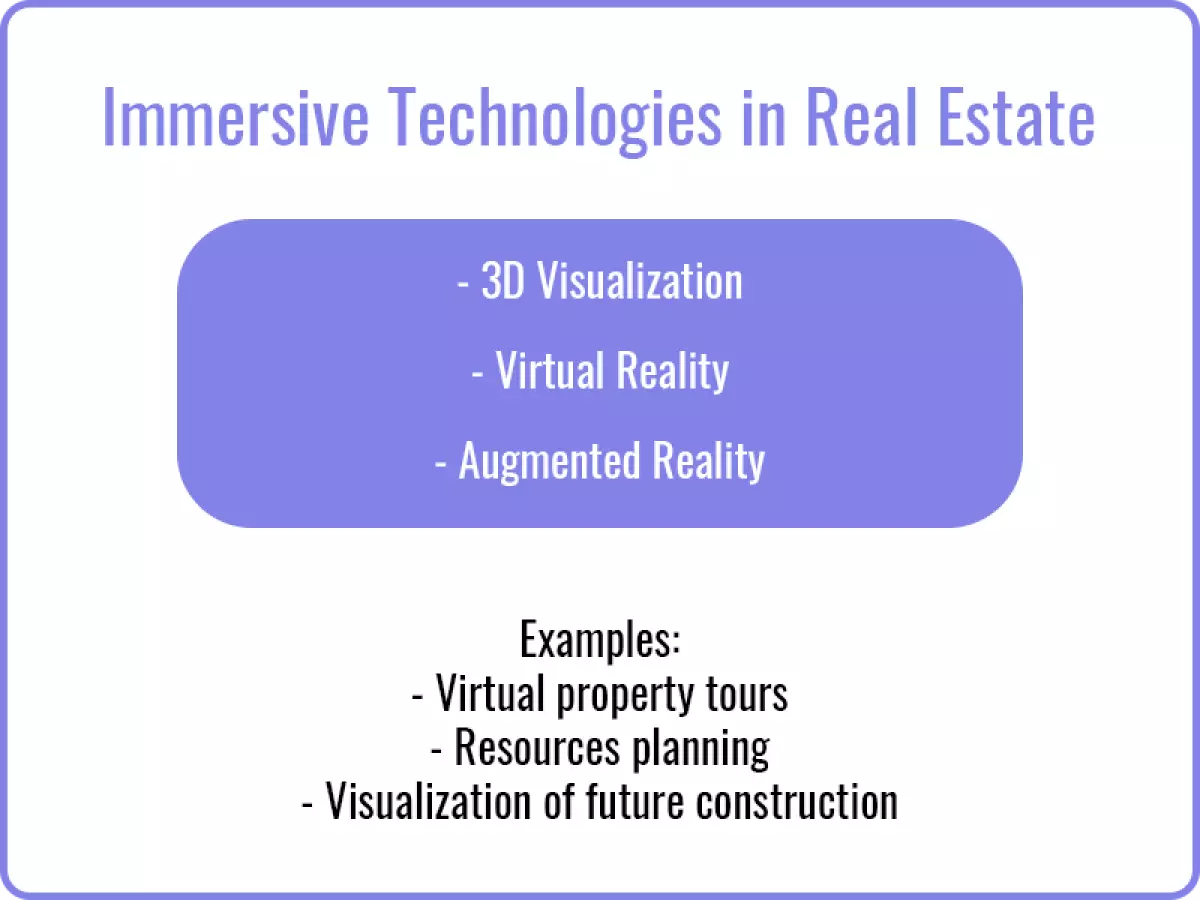From virtual reality home tours and automated property management to AI-driven insights about buyer behavior, the newest real estate technology trends are changing the game.
Introduction
The real estate industry is constantly evolving, and staying ahead of the curve is crucial for success. As we look towards the future, it's essential to understand the technology trends that will shape the industry in the coming years. In this article, we will explore the top 10 real estate technology trends for 2022–2025 and how real estate agents can take advantage of them.
Key Real Estate Tech Trends Transforming the Industry
Let's dive into the world of new technology in real estate and explore how it can transform your real estate business.
Artificial Intelligence
Artificial intelligence (AI), along with machine learning and virtual assistants, is undoubtedly the future of real estate technology. AI has the potential to transform the way companies operate completely. It can be used in various facets of the real estate industry, such as historical data analysis, optimizing pricing strategies, automating customer service tasks, determining global real estate market trends, and enhancing the overall purchasing experience.
For instance, AI algorithms can help agents identify patterns in customer behavior and tailor their marketing campaigns accordingly. Additionally, AI can optimize online ads to better target the right audience. By leveraging AI, agents can gain an edge over their competitors, reach the right people with their message, increase conversions, and provide a more streamlined service for their prospective buyers.
 Artificial Intelligence in real estate
Artificial Intelligence in real estate
Immersive Technologies
Immersive technologies, such as virtual reality (VR) and augmented reality (AR), allow prospective clients to have an immersive 3D experience of a property. These technologies not only help visualize what it would be like to live on-site but also provide a better customer experience.
Builders and architects can use VR and AR as smart building technologies to create 3D models of potential projects before committing resources to build them. This allows for faster iteration and validation of ideas before investing in construction.
 Immersive Technologies in real estate
Immersive Technologies in real estate
Internet of Things (IoT)
IoT smart devices can do more than just monitor the physical environment of a building. They can help regulate heating and cooling systems, control access remotely, provide a personalized and seamless experience, monitor customer activity, and send automated notifications about maintenance issues or late payments. By leveraging IoT devices, real estate agents can provide a more tailored and efficient service to their clients, increasing customer satisfaction and loyalty.
 Internet of Things in real estate
Internet of Things in real estate
Building Management Systems (BMS)
Building Management Systems (BMS) allow real estate firms to monitor and control the physical environment of a building. These systems can automate certain property management tasks, such as scheduling maintenance work or controlling access to specific areas. By automating aspects of building management, BMS can save time and money, improve resource usage, and provide a more personalized experience for property buyers.
 Building Management Systems (BMS)
Building Management Systems (BMS)
Big Data Analytics
By leveraging big data and analytics, real estate agents can gain valuable insights into customer behavior, market trends, and investment opportunities. This information enables them to make timely and informed decisions that can improve business performance. Big data analytics can also help agents understand their audience better, target marketing campaigns better, and provide more personalized services, leading to increased customer satisfaction and loyalty.
Property Management Software
CRM systems and property management software streamline communication, efficiently process applications and leases, provide real-time updates, and offer analytics tools. These software solutions enhance efficiency, profitability, and customer satisfaction in the real estate industry.
Blockchain
Blockchain technology can securely record property titles and contracts, facilitate seamless transactions, eliminate middlemen, reduce transaction costs, and ensure transparency, security, and efficiency in managing property titles and contracts.
Property Aggregation Platforms
Property aggregation platforms collect data from multiple sources and provide agents with up-to-date listings, market insights, and virtual tours. These platforms make it easier for agents to find the perfect property for their clients, compare prices, and identify potential opportunities.
Drones
Drones revolutionize how real estate is marketed and inspected. They offer aerial views for stunning videos and photos, inspect rooftops, track changes in the real estate market, and provide invaluable insights for real estate investors and agents.
Data Security
Protecting sensitive data is crucial for the real estate industry. Real estate businesses hold volumes of valuable information that can be used and abused for various purposes. Data security tools and solutions are essential for preventing cyberattacks and ensuring compliance with data security laws.
Digital Twins
Digital twins serve as virtual replicas of objects, systems, processes, or people in the real estate industry. They allow real estate professionals to accurately predict how a building will fit into the environment, streamline construction processes, optimize maintenance schedules, and make smarter decisions for evolving cityscapes.
Fractional Property Investment
Fractional property investment allows for shared ownership of a property, providing investors with cost-effective and flexible real estate investment options.
Mobile Applications Usage
Mobile applications have transformed the real estate landscape, offering features like real-time communication, financial tools, transaction tracking, market insights, and personalized experiences.
Conclusion
The real estate industry is undergoing a significant transformation due to emerging technologies. The key real estate technology trends for 2022–2025, including artificial intelligence, immersive technologies, IoT, big data analytics, blockchain, and more, offer exciting opportunities for real estate agents and businesses. By embracing these trends, real estate professionals can stay ahead of the competition and provide a more efficient and personalized experience for their clients.

















